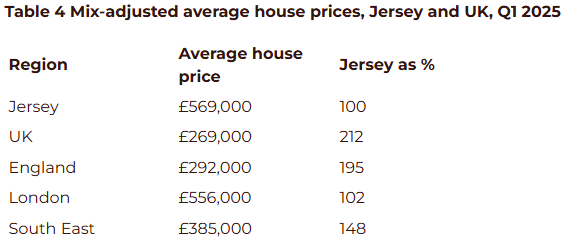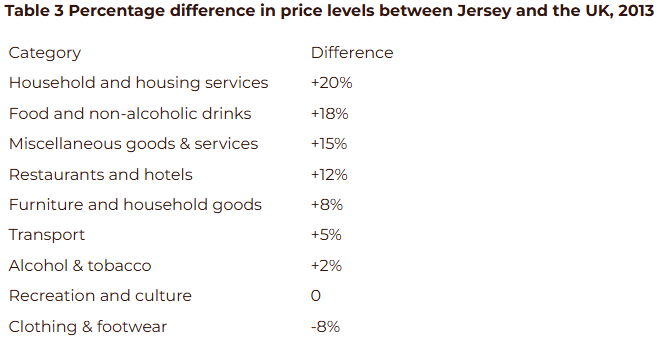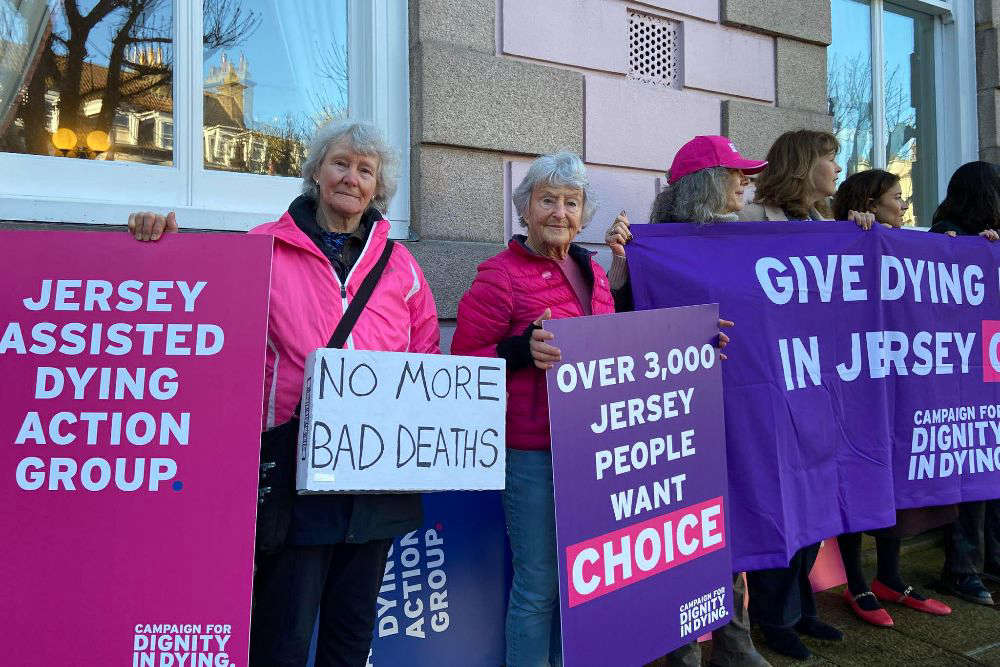
A new report by think tank the Policy Centre concludes that housing is the 'obvious' area where Jersey cost of living can be reduced.
Almost two thirds of people (64%) who were surveyed earlier this year believed that the cost of living is the most important issue we face in Jersey.
This concern increases to 82% among single parents.
Just shy of 60% of people think housing is the next most critical issue.
The Policy Centre's 'Cost of Living' report notes that the 'real issue' is not just high prices, but people's ability to meet them.
"Real earnings have not increased since the beginning of the century, and have actually fallen by 3.3% since 2020."

The report, which surveyed 1,000 islanders in January 2025, shows that housing costs dominate household budgets.
Average house prices in Jersey are on par with London, at around £569,000, are 50% higher than in the South East of England, and 27% higher than in Guernsey, according to Statistics Jersey data from 2025 Q1 House Prices.
Islanders aged between 17 and 34 are the most concerned about rent and mortgage payments, which tend to make up around a third of monthly outgoings for many people here.

People in Jersey typically earn 51% more than their UK counterparts, but this is only before housing costs are considered.
The research paper states that the rising cost of living in the island 'erodes living standards for many'.
Going to the supermarket is 14% more expensive in Jersey than in the UK, which the Policy Centre puts down to the lack of discount retailers, which are present there.
Low-income families can pay up to 49% more for groceries than their neighbours across the Channel.
"The fact remains that Jersey’s special circumstances mean that those who shop at, for example, Waitrose or M&S are paying 14% more for their food than they would in the UK."
"Low income families could be paying as much as 49% more than their UK counterparts because they do not have access to a Lidl, Aldi, Costco or street markets. Low income families are therefore disproportionately impacted by grocery prices in the Island."
- The Policy Centre
However, the Jersey Competition Regulatory Authority notes that even if low-cost grocers from the UK came to Jersey, they would face the same additional costs as existing retailers, meaning it would still be more expensive than the UK, regardless.

The report concludes that the cost of living in Jersey is high, 'largely because of high housing costs', and that 'the high cost of housing in Jersey is a direct consequence of political decisions which have restricted supply'.

Senior Advisor Mark Boleat says the government must bring forward policies that increase the supply of homes. He warns what will happen if nothing is done:
"Young Jersey families finding that they need to leave the island to find somewhere they can afford to buy. But also, it's becoming difficult for schools and the health service to employ people. It is not the pay - that is often higher than in the UK, and Jersey is a wonderful place in which to live and to work, but if people are paying a lot more for their housing they are going to be reluctant to come here to work.
Another recommendation is to encourage low-cost retailing to move to Jersey.
"People in the UK can shop at Aldi and Lidl. We don't have those sort of shops in Jersey. For people who are looking for a low-cost retailer - there simply aren't any. It's not a question of the government brining them in, as some would like to say, but it is certainly worth exploring what are the obstacles to them operating in the island."


 'Momentous' week in Jersey's States
'Momentous' week in Jersey's States
 Plans to charge wealthiest patients for medical travel
Plans to charge wealthiest patients for medical travel
 Railway Walk reopens 'several weeks' ahead of schedule
Railway Walk reopens 'several weeks' ahead of schedule
 New bar opening at former Rojo and X site to evolve Jersey's nightlife
New bar opening at former Rojo and X site to evolve Jersey's nightlife
 Former Chief Minister seeks re-election
Former Chief Minister seeks re-election
 Château Vermont to become home to new music campus
Château Vermont to become home to new music campus
 St Saviour break and entry suspect pictured posing on motorbike
St Saviour break and entry suspect pictured posing on motorbike
 'Overstretched' neurology department following under-experienced managers
'Overstretched' neurology department following under-experienced managers

